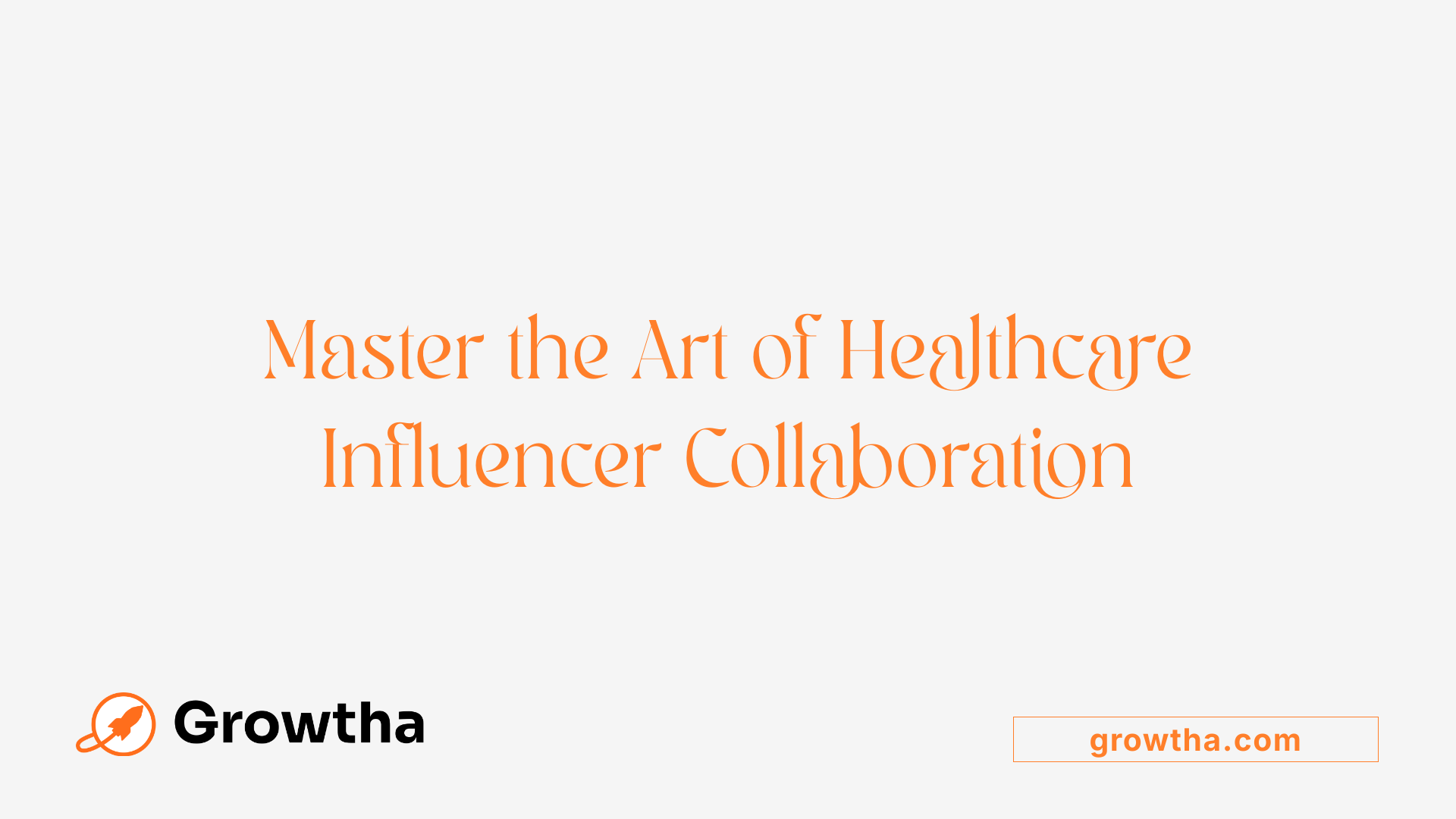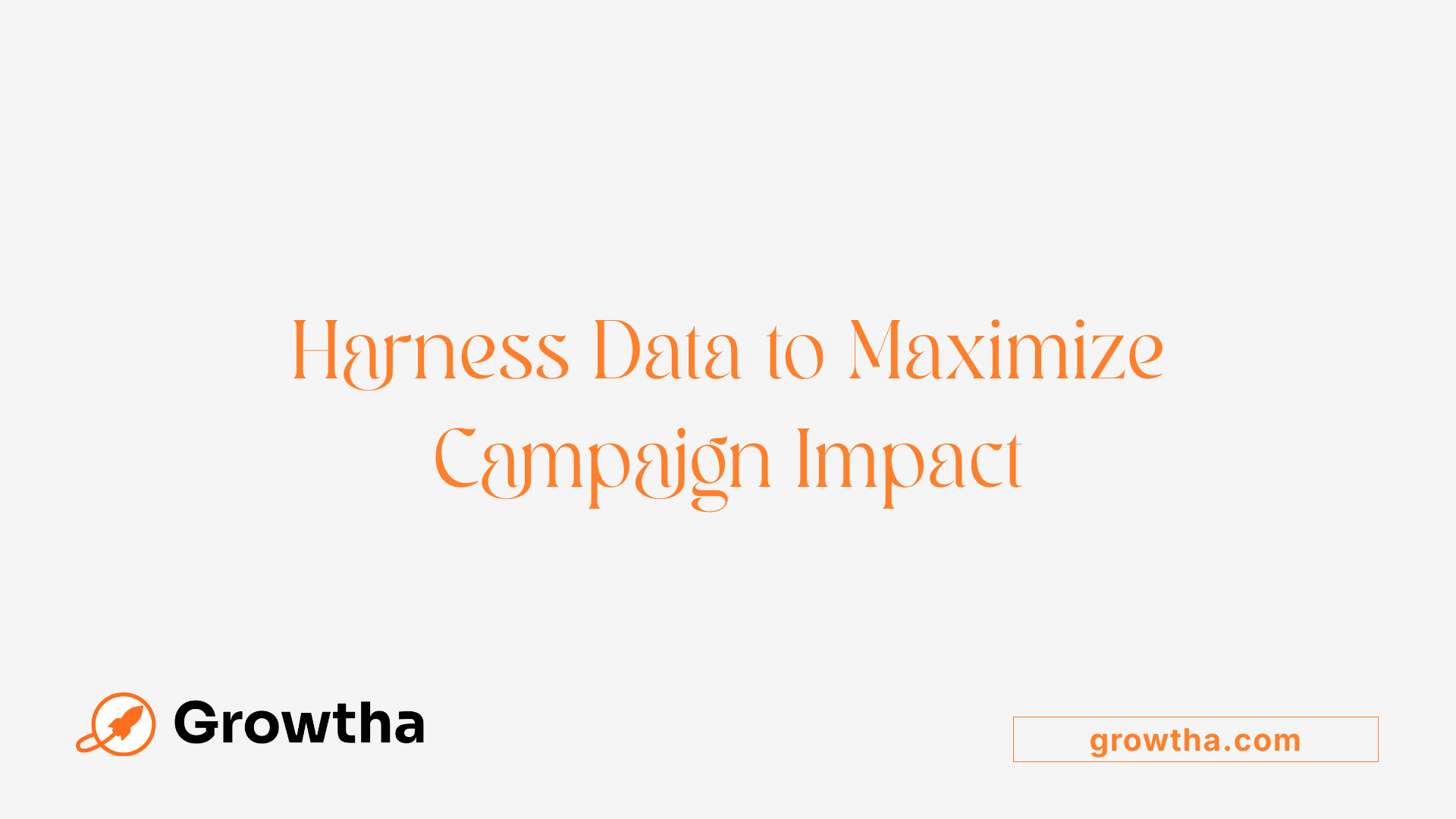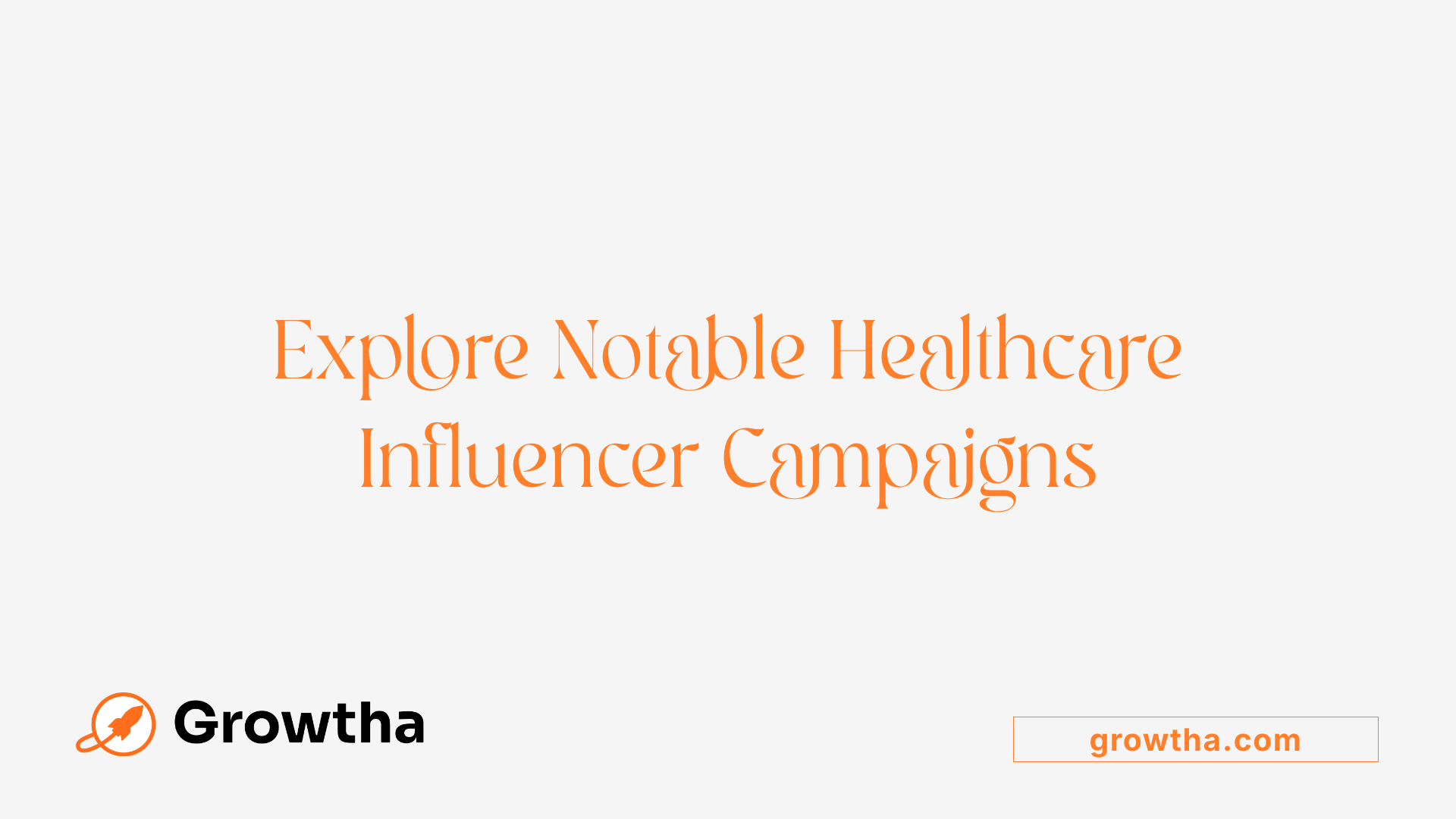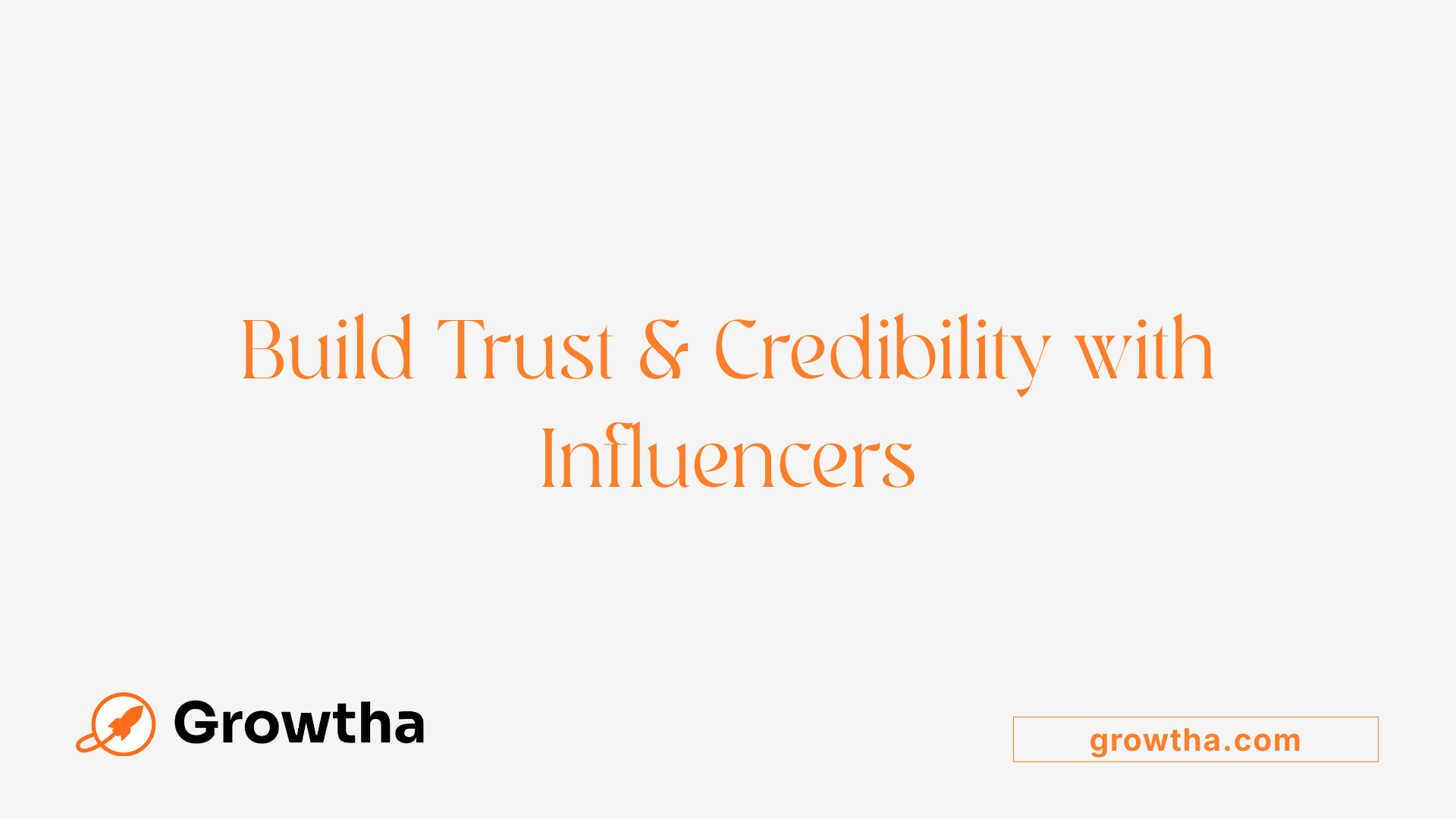How to Leverage Influencer Marketing in the Healthcare Sector
Harnessing Influencer Power for Greater Healthcare Impact


How to Leverage Influencer Marketing in the Healthcare Sector
Transforming Healthcare Marketing with Influencer Strategies
In today's digital landscape, healthcare organizations are increasingly turning to influencer marketing as a powerful tool to build trust, educate audiences, and promote health initiatives. By partnering with credible and authentic influencers—ranging from healthcare professionals to patient advocates—these organizations can humanize their brands, extend their reach, and foster meaningful patient engagement. This article explores comprehensive strategies, best practices, and real-world examples that demonstrate how healthcare providers can effectively leverage influencer marketing to achieve their goals.
Understanding the Benefits of Influencer Marketing in Healthcare
Establishing trust and credibility
Healthcare organizations are increasingly partnering with influencers to build trust and reinforce credibility among audiences. Influencers, especially those with professional credentials or recognized expertise, are trusted sources—82% of physicians, for example, rely on influencers’ credibility when engaging with content. Authentic stories and personal experiences shared by influencers help humanize healthcare brands, making complex medical information more relatable and trustworthy.
Targeting specific patient audiences
Influencers help target specific groups effectively. By selecting influencers relevant to particular health conditions or demographics, healthcare brands reach audiences that are already interested and engaged. For instance, partnering with dermatologists or mental health advocates can optimize outreach for skin conditions or emotional well-being, ensuring messages resonate with those seeking information.
Enhancing engagement and outreach
Influencer campaigns significantly outperform traditional content, with 45% higher engagement rates seen in healthcare marketing. Platforms like TikTok, Instagram, and YouTube are popular choices for visual, short-form content such as videos and infographics, which physicians and patients prefer for quick, impactful communication.
Humanizing healthcare brands
Personal stories shared by influencers foster a more relatable image of healthcare brands. Sharing authentic patient or provider experiences helps humanize organizations, fostering emotional connections that can influence health behaviors positively. As consumers tend to trust peer recommendations more, influencers effectively motivate lifestyle changes and health actions.
Correcting misinformation
Influencers play a critical role in counteracting healthcare misinformation. Through transparent, accurate content, they clarify misconceptions about treatments or medications. Training influencers on regulatory guidelines, such as FDA rules about proper medication use and side effects, ensures the dissemination of safe, accurate information.
Encouraging positive health behaviors
Influencer marketing encourages healthier behaviors and increased health literacy. Campaigns involving personal stories or clinical data—like Pfizer’s diabetes influencer initiatives or dermatologist collaborations—can motivate audiences to seek treatment, get screenings, and stay informed. Over half of physicians (51%) have conducted additional research based on influencer recommendations, highlighting the impact influencers have on patient decision-making.
Together, these strategies illustrate how influencer marketing not only expands reach but also fosters trust, humanizes the healthcare experience, and promotes better health outcomes across populations.
| Benefit | Description | Impact Metrics |
|---|---|---|
| Trust & Credibility | Influencers share authentic personal experiences, professional insights, and human stories | 82% of physicians trust influencers' credibility |
| Audience Targeting | Reaching specific patient groups with relevant content | Higher engagement in niche segments |
| Engagement & Reach | Campaigns show 45% increased interaction rates | Improved awareness and information dissemination |
| Humanization & Connection | Sharing real stories builds emotional bonds | Increased patient trust and comfort |
| Correcting Misinformation | Proper training ensures accurate health info | Reduced misconceptions and misinformation |
| Behavioral Change | Inspiring healthier habits and decisions | Better health outcomes and patient involvement |
Leveraging influencer marketing with well-chosen partners and strategic planning enables healthcare organizations to effectively connect with audiences, foster trust, and promote positive health behaviors.
Best Practices for Building Successful Healthcare Influencer Partnerships

What are the best practices for implementing influencer partnerships in healthcare marketing?
Developing effective healthcare influencer collaborations involves multiple strategic steps. First, selecting credible and relevant influencers—such as healthcare professionals, patient advocates, or medical researchers—is crucial. These individuals should have an authentic connection to the target audience and possess a trusted presence on platforms like TikTok, Instagram, or YouTube.
Clear communication forms the foundation of a successful partnership. Brands need to establish detailed campaign briefs that outline specific goals, expectations, and content guidelines. Regulatory compliance is vital; therefore, providing thorough training on FDA and FTC regulations and disclosures ensures that all content adheres to legal standards.
Maintaining transparency and open dialogue fosters genuine relationships. Influencers should feel supported to share relatable health stories, personal experiences, and evidence-based information, which humanizes healthcare messaging. Long-term collaborations are recommended, as they build deeper trust, allow for sustained messaging, and enable influencers to evolve as credible advocates.
In addition, rigorous vetting and review processes are essential to ensure that content complies with legal, ethical, and quality standards. Regular monitoring and feedback help prevent misinformation and maintain brand integrity.
Finally, the primary focus is on educating audiences, supporting informed choices, and reinforcing accurate, evidence-based health messages across suitable digital channels. This approach maximizes trust, engagement, and campaign impact.
Data-Driven Optimization of Healthcare Influencer Campaigns

How can healthcare brands use data-driven approaches to optimize influencer campaigns?
Healthcare organizations are increasingly relying on data analytics to enhance the effectiveness of their influencer marketing efforts. By examining detailed engagement metrics—such as likes, shares, comments, and click-through rates—they can identify which influencers resonate most with their target audiences. Audience demographic data, including age, location, and health interests, further refines targeting strategies.
Utilizing performance dashboards and analytics tools provides real-time insights, allowing marketers to track campaign progress as it unfolds. This enables prompt adjustments, such as refining messaging, reallocating budget, or shifting focus toward better-performing content. For example, if a particular infographic or short video garners higher engagement from a specific patient segment, the campaign can be tailored to prioritize similar content.
Personalized messaging benefits greatly from this approach. By analyzing audience behaviors and preferences, healthcare brands can craft more relevant communication tailored to different stages of a patient's healthcare journey. Whether educating about symptoms, treatment options, or preventive care, personalized content fosters trust and engagement.
Choosing the right type of influencer is also guided by data. Micro-influencers often deliver higher engagement rates within niche communities, while macro-influencers can expand reach quickly. Data analysis helps determine the optimal balance based on campaign goals and budget constraints.
Furthermore, integrating behavioral segmentation with AI-driven tools enhances targeting precision. AI algorithms can process vast amounts of data to predict which influencers are most likely to generate meaningful interactions and conversions. This strategic selection leads to more authentic partnerships and cost-effective results.
Adjusting strategies based on real-time insights ensures that healthcare campaigns remain agile and effective. Continuous monitoring of key performance indicators allows for prompt course corrections, maximizing ROI. By embracing data-driven techniques, healthcare organizations can deliver impactful, compliant, and trusted influencer messages that resonate, educate, and empower their audiences.
Navigating Industry Regulations and Ethical Considerations
What industry-specific considerations and regulations should be kept in mind when conducting influencer marketing in healthcare?
Engaging in healthcare influencer marketing requires strict adherence to regulations to ensure ethical standards are maintained and legal compliance is achieved. Regulatory bodies such as the Federal Trade Commission (FTC), Food and Drug Administration (FDA), and the Health Insurance Portability and Accountability Act (HIPAA) impose specific requirements for marketing practices.
Transparency is critical. Influencers must clearly disclose material connections, sponsorships, or paid partnerships using visible and straightforward language. This applies across all content formats, including posts, videos, and stories, to avoid misleading audiences and to comply with FTC guidelines.
Healthcare content must be accurate and substantiated. Avoid making unsupported health claims, and never endorse products or treatments without scientific backing. Misleading endorsements or false advertising can lead to legal penalties and damage to credibility.
Handling personal health data introduces additional layers of responsibility. Laws like GDPR in Europe and CCPA in California govern the privacy of individuals' information. Marketers and influencers must ensure that any collection, storage, or use of personal data aligns with these regulations.
Clear contractual agreements should specify content ownership, disclosure obligations, and compliance requirements. Regular legal audits and training sessions help influencers understand industry standards and prevent inadvertent violations.
Finally, ongoing monitoring of campaigns, combined with proactive influencer education about regulatory expectations, reduces risks of fines, sanctions, or reputational harm. In the highly regulated healthcare space, a diligent approach to compliance is essential for building and maintaining trust with audiences.
Successful Campaign Examples in Healthcare Influencer Marketing

Can you provide examples of successful healthcare influencer marketing campaigns?
Effective healthcare influencer campaigns are built on trust, authenticity, and clear communication. They often involve credible medical professionals or respected organizations sharing personal stories or expert insights, which resonate with audiences and promote health awareness.
A notable example is Pfizer’s outreach to BIPOC communities. The company partnered with influencers on platforms like Instagram and Twitter to raise awareness and distribute health resources tailored to underrepresented groups. This campaign successfully reached over 500,000 people, demonstrating how targeted influencer collaboration can promote inclusivity and health education.
Another successful initiative is Moderna’s #SpikevaxPartner campaign. By engaging nano and micro-influencers—individuals with smaller but highly engaged audiences—Moderna increased vaccine awareness. The campaign achieved impressive reach, with over 503 million impressions, and contributed to nearly 25% of US vaccine conversions. The personalized content and diverse influencer participation helped dispel misinformation and foster trust.
Long-standing efforts like the Harley Street Fertility Clinic exemplify how influencer-driven content can boost SEO and online visibility. The clinic increased its organic traffic by 65% year-over-year by combining influencer collaborations with targeted SEO strategies, content marketing, and paid advertising. Such campaigns highlight the importance of authentic storytelling combined with measurable digital growth.
These campaigns underscore several best practices: leveraging credible partnerships, maintaining transparency, and using data analytics to optimize outreach. They also demonstrate the power of utilizing a variety of social media channels to engage different audiences effectively.
Ultimately, successful healthcare influencer marketing relies on building genuine relationships, clear goals, and ethical communication to foster long-term trust and engagement.
Building Trust and Credibility Through Influencer Collaboration

How can healthcare organizations build trust and credibility through influencer collaborations?
Healthcare organizations can strengthen their reputation by partnering with carefully chosen influencers who are relevant and authentic. Selecting credible influencers, such as healthcare professionals or advocates with significant followings, ensures that the content shared is trustworthy and aligns with the company's values.
Authentic storytelling plays a vital role. Influencers sharing real personal experiences, backed by evidence and clinical data, improve the perceived reliability of the message. Transparency about partnerships and open communication with influencers foster genuine collaborations, allowing influencers to create relatable content that resonates with audiences.
Diverse content formats like short videos, infographics, and quick articles are especially effective. These formats cater to busy healthcare professionals and consumers seeking quick, trustworthy information.
Monitoring campaign metrics such as engagement rates, website traffic, and social media reach helps organizations assess impact and refine strategies. Long-term relationships with influencers create ongoing trust and authenticity, leading to sustained influence.
Overall, authentic influencer partnerships humanize healthcare brands, increase public trust, and promote better health outcomes. They serve as an effective bridge between providers and consumers, encouraging informed health decisions.
Integrating Influencer Marketing into Broader Healthcare Strategies
How should influencer marketing be integrated into overall healthcare marketing strategies?
Healthcare organizations are increasingly recognizing the value of incorporating influencer marketing into their comprehensive marketing plans. To do this effectively, partnerships should be formed with credible healthcare professionals, patient advocates, and popular social media personalities who share relevant expertise. These influencers help to create authentic, evidence-based content that resonates with target audiences.
The focus should be on delivering relatable stories and personal health experiences. Such content encourages active engagement from patients and helps to build trust. By humanizing healthcare brands, influencers can differentiate a company's message amidst a crowded market.
Incorporating influencer marketing requires careful planning around regulatory compliance, transparency, and oversight. Clear guidelines must be established to ensure that all content accurately communicates product information, side effects, and medical claims while adhering to regulations like those from the FDA and FTC.
Long-term relationships with influencers can amplify brand consistency. Through ongoing collaborations, healthcare brands can foster genuine advocacy, reinforce their credibility, and maintain a steady flow of authentic, engaging content.
This strategic approach serves to complement traditional marketing efforts such as advertising, public relations, and community outreach. When integrated seamlessly, influencer marketing enhances patient education, increases engagement, and influences health-related decisions more effectively.
Overall, combining influencer initiatives with broader marketing strategies helps healthcare organizations connect more deeply with their audience, promote health behaviors, and establish lasting trust in their brand.
Harnessing Influencer Relationships for Sustained Impact
By carefully selecting credible influencers, adhering to regulatory standards, leveraging data analytics, and nurturing long-term relationships, healthcare organizations can maximize the benefits of influencer marketing. When executed ethically and authentically, influencer campaigns not only boost awareness but also inspire positive health behaviors, ultimately improving patient outcomes and fostering trust in healthcare brands. The future of healthcare marketing hinges on innovative, transparent, and strategic collaborations with influencers who genuinely advocate for health and wellness.
References
- Building Trust Through Healthcare Influencer Partnerships
- Mastering the “influencer” game in healthcare marketing - Sermo
- Influencer Marketing for Healthcare: Examples and Best Practices
- Influencer Marketing For Healthcare: Best Strategies - Madavi Agency
- Unveiling the Value of Influencers in Healthcare Marketing
- Leveraging Influencer Networks in Pharma Marketing: Strategies for ...
- How Influencer Marketing is Changing Healthcare







